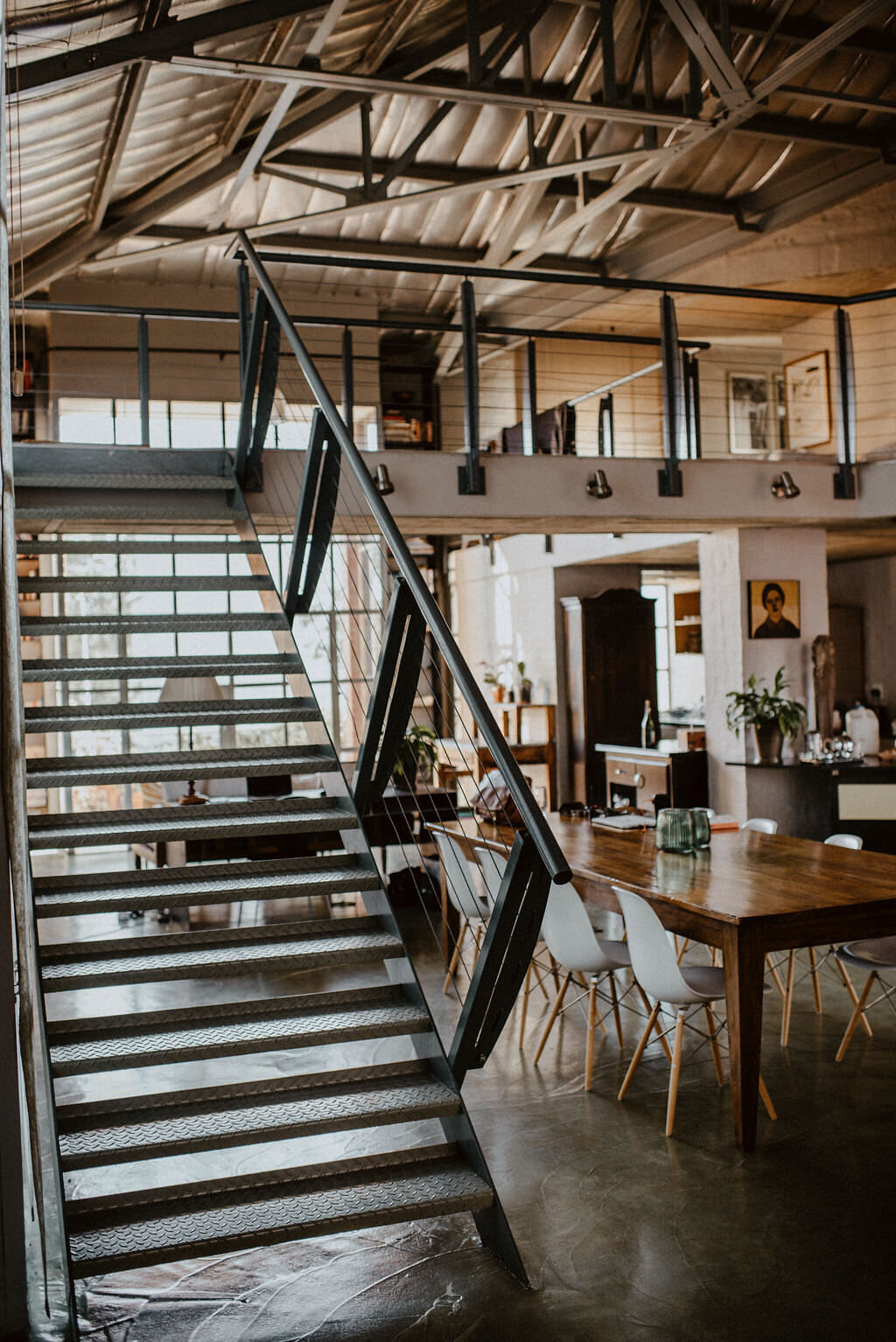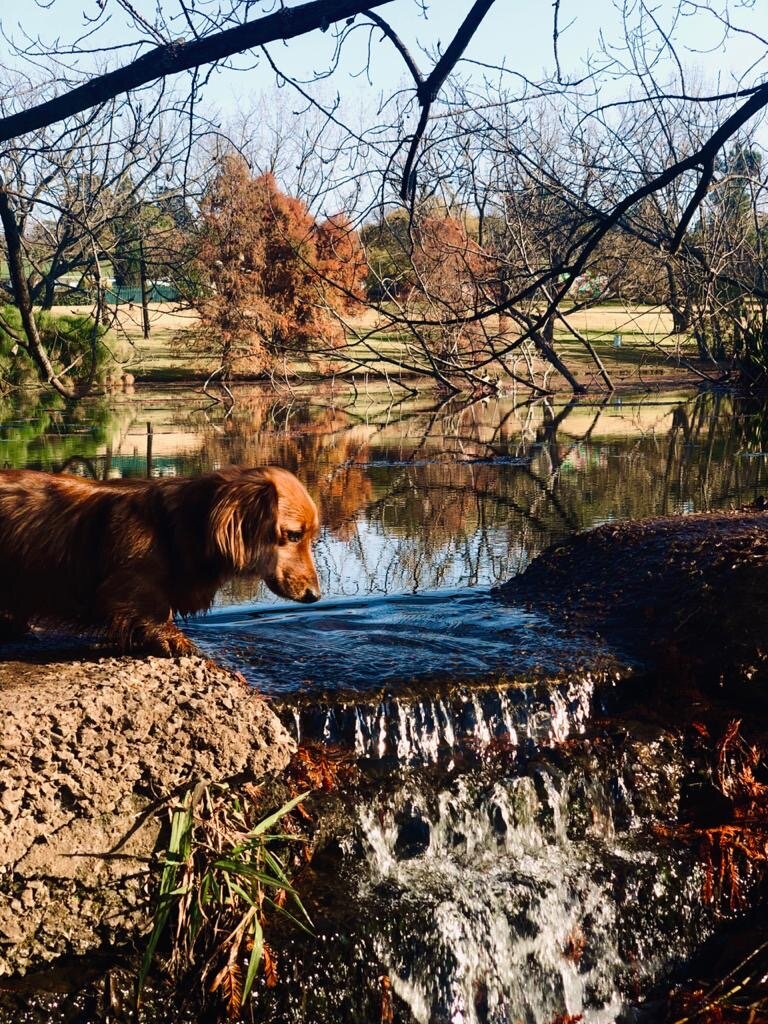Driving and Buying a Car in South Africa
/In South Africa, the majority get around in mini-bus taxis or buses, but as an expat, it’s likely that you will be able to afford your own car and will prefer to drive yourself. This is the easiest and most convenient way to get around Joburg (unless you’re stuck in peak traffic, which happens!) Owning a car as an expat involves some effort, but with all the right documents, and patience, you’ll be able to buy and register a car.
We recommend that each adult has access to a car (it will make your life much easier). But, make sure you are both prepared to drive on the right side of the car, left side of the road!
Driving in South Africa happens on the left side of the road, and the driver is on the right side of the car.
You do not need an additional drivers license unless your ID card is not in English. In this case, you need a International Drivers Permit. Always carry a copy of your passport, your drivers license, and the car registration tag (usually posted on the windshield). If you are getting residency, then you will need to apply for a South African Drivers License.
NOTE: Services like Uber are very popular, so make use of them, especially if you’re going downtown or plan to drink alcohol.
Finding a Car
For the price difference, you may want to look to buy a second-hand car in good condition. You can research online to see what’s available, as the models available might differ slightly from other countries: http://www.autotrader.co.za/
To give you an idea, here is a list of the top 10 passenger cars sold in South Africa as of July 2016:
1. Volkswagen Polo Vivo
2. Volkswagen Polo
3. Toyota Corolla Quest and Auris
4. Toyota Etios
5. Ford Fiesta
6. Ford EcoSport
7. Toyota Fortuner
8. BMW 3 series
9. Renault Sandero
10. Ford Figo
Other common models, especially in Gauteng, are Mercedes Benz, Volvo, Hyundai i10S, Honda Jazz and Toyota Quantums and Volkswagen Kombis (the car of choice for mini-bus taxis).
Most cars in South Africa are manual transmission but automatics are becoming more common. It’s advisable to get a car that also has ABS breaks, power steering, airbags and adequate boot (trunk) space, especially if you have children.
You’ll see most of these popular cars are white in color. This is because white will reflect the hot sun just a little bit more, and it blends in so that you don’t stand out.
SAFETY FIRST!
Hi-Jacking and Smash-and-Grab
There’s no need to be overly paranoid, but know that in certain areas of Johannesburg, especially in the wealthier suburbs and downtown, that vehicle crime is an unfortunate reality.
To mitigate your risk, know which cars are targeted for hi-jacking by criminals. These models are popular and easier to take apart and to be used as spare parts. These high-risk models include:
• Toyota Fortuner
• Volkwagen Polo
• Toyota Quantum
• Toyota Hi-ace
• Nissan 1400
• Toyota Hilux
• Toyota Venture
• Toyota Corolla
Avoid driving in high-risk areas or at late night/early morning, but unfortunately hi-jacking may happen anywhere. Take an Uber if you feel unsafe in a certain area.
Smash-and-grab can also happen anywhere. Keep your valuables, purses, laptops out of sight from passersby, either under your seat or in the boot of your car at all times. When leaving your car, always be sure to keep your valuables in the boot where they cannot be seen. Double check your doors are locked, as it is common that criminals have remote lock jamming devices to keep your doors open. If your car will not lock, get back in and drive away.
Smash-and-Grab Protection
This is a plastic film will prevent the glass shattering if someone breaks your window during what is known as a smash-and-grab, where a criminal will break a window to steal something out of your car when you are stopped at a robot (traffic light). Keeping your window open a fraction also makes breaking a window more difficult.
Other preventative tactics include always leaving adequate space in front of you and the next car when stopped at a robot, this will give you a chance to maneuver in the event that someone does try to break your window.
Also, it is common that people do not come to a complete stop at intersections when roads are open and cars are not seen. We recommend you drive safely and defensively at all times, but if you ever feel unsafe or threatened, put your safety first!
Children in Cars
It is the law for children 3 and under to be strapped into a car seat at all times. Beyond that, the laws are few and rarely enforced. It is estimated that much less than 60% of children in vehicles even use car seats, and the thought of this is frightening. We recommend you secure your children in the car as you see fit… and get a car seat!
You can buy car seats at Baby City, Babies R Us (Toys R Us), Makro, Game, or other stores that carry baby items. You can also find ones from people in your area or expat groups selling old ones which works out well, provided they have never been in an accident.
4x4 Vehicles in South Africa
In Johannesburg 4x4 or SUV’s are common. One of the South African customs we adopted as a family is to go on long road trips to the coast, and so now need a larger car to pack all the bikes / beach gear etc, plus its great to get off road exploring either on safari or in Lesotho. (Most game reserves will allow you to drive you own car, but 4x4 cars will have access to more roads and be able to get through rougher terrain than others!)
Note that you’ll spend a lot more on fuel though!
To give you an idea of what’s available, here are the top 10 SUV’s in South Africa in 2016:
• Ford EcoSport
• Toyota Fortuner* (See above)
• Renault Captur
• Toyota Rav4
• Ford Kuga
• Nissan Qashqai
• Nissan X-Trail
• Volkswagen Tiguan
• Jeep Grand Cherokee
• Toyota Prado
Land Rovers, BMW X5, and Volvo's are very common amongst the expat community and you can often pick one up from someone that is leaving. Other common utility vehicles, which you’ll see more of in rural areas, are Ford Rangers and the Toyota Hilux.
How to Register a Car
In order to register a car, you will need to buy one first and organise the requisite finance (if needed). To secure finance you will need to have a bank account (See post on finances).
You’ll first buy the car (pay a deposit and secure finance), and will then receive a certificate of registration from the car dealership where you bought the car. This can be an issue if you do not have South African credit already accumulated. Discuss with your employer, sponsor, relocations agent, or bank representative what’s possible in your situation.
Without a South African ID, you will need to get a Traffic Register Number, but please note that the laws keep changing on this. Often you can only get a Traffic Register Number if you have a valid work permit or permanent visa (but not always!).
Documents for the Traffic Register Number
To get a Traffic Register Number, register your car with the Traffic Department, and provide the following, which your car dealership should provide:
• Roadworthy certificate
• Current registration
• Invoice/Proof of payment
In order to get license plates for your car, go through the registration process at any branch of the Traffic Department. This can be very busy, so plan plenty of time!
In addition to the above documents, you will also need to provide the following documents to register a car:
• Proof of identification: Passport and passport pictures (for processing)
• Proof of residence: Lease agreement
• Proof of drivers license: Foreign drivers license
Insurance and Car Tracking
As crime is a problem in South Africa, it’s important to take out comprehensive insurance. Many South Africans also install a tracking device in their cars so they can be more easily traced if they are stolen.
There are various options available but the following are popular companies that operate around the country:
• Outsurance
• Miway
• Hollard
• Dialdirect
• Tracker
• Cartracks
• Matrix
Your car dealership will also be able to offer you some options to consider, and may be also able to organise this on your behalf.
If You Are Stopped…!
In the past few years there has been a noticeable increase in police and metro police presence in Johannesburg so be sure to always keep your driver’s license with you and make sure that your vehicle license is up to date. If not, you will be fined, and could potentially be arrested, if any of these are out of date.
Road blocks are not uncommon, but are not to worry about. Just keep your license, registration, copy of your passport with you. If you are flagged by a police officer at day in a busy area, you can pull over. They mostly just make sure your documents are in order.
With many minibus taxis notoriously unroadworthy, metro police have taken a hard stance on infringements, particularly DUI, so be careful and don’t drink and drive (stricter laws have just come into play). Even two drinks is too much. If you don’t have a designated driver, just take an Uber!
If you are asked to pay for an infringement that you do not agree with, you can always call your embassy, and tell the officer you will be doing this. Keep this number handy on your cell phone, and make sure your phone is charged!
ENJOY THE RIDE!
You will not avoid driving in South Africa, as public transit options are very very limited and walking or biking is often not an option for the commute. Make it a comfortable journey for you and your family- connect your bluetooth to your phone, get some excellent music, podcasts, audiobooks, even when driving around the city. Traffic jams are common, but just drive defensively, keep your phone charged, carry a pair of sunglasses, and you’ll be just fine.














